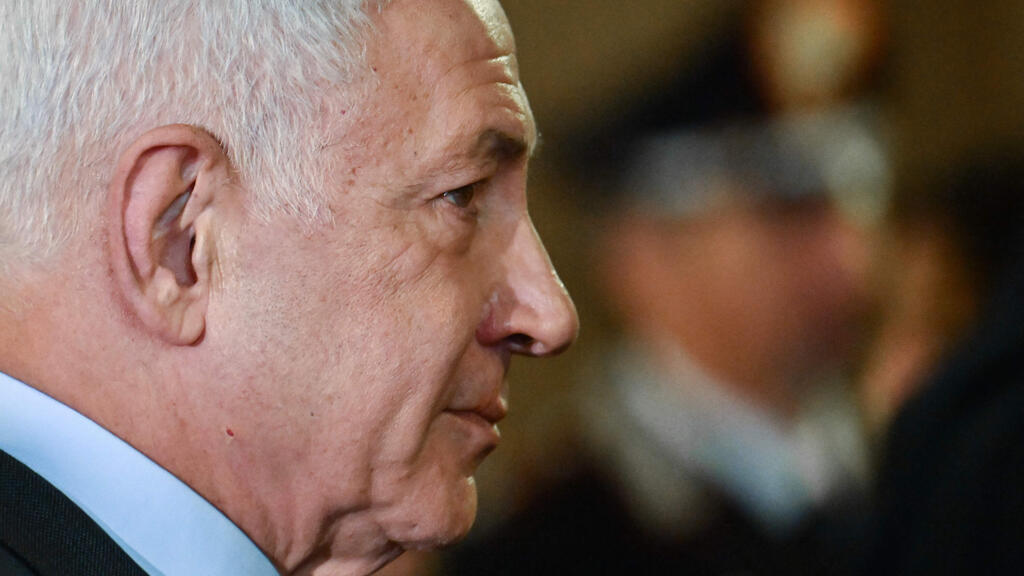Getting your Trinity Audio player ready...
When Israeli children reach the age of "no", many local parents read Ha-Dubon Lo Lo (Teddy Bear No-No) to them, about a cuddly creature who refused everything he was asked, offered, requested, or instructed. An angel cast a spell on him, which limited his vocabulary to one word: no. This led to frustration, miscommunication, and harm. Eventually, the spell was lifted, and the story came to a happy end.
Read more:
Israel has its own No-No bear, although he is not cuddly but rather large and tired. I will not allow Fatahstan to replace Hamastan, there will be no Palestinian state, we will not give Gaza to outside forces, and we will not submit to international pressure, not even by the United States. No, no, and no. While in a recent article in the Wall Street Journal, he laid down some Israeli demands regarding the future of Gaza, he did not answer the aforementioned questions.
The issues on Israel's agenda are complex, there are no magic formulae, and there are clear problems with every scenario he has negated in the past or negates in the present – any choice will involve risks. But having taken public responsibility for Israel's future (if not for the past, meaning the October 7th disaster), please tell us if there is any "yes" and what it is. If not hope, can we at least have a game plan, a direction?
There is no need to state the obvious - this is a very difficult time here in Israel. Daily announcements about fallen soldiers, new revelations about the massacre and Hamas imprisonment, conversations with evacuees, collapsing businesses, and the overall economic situation, all generate sadness, even depression.
But after "Together We Will Win", as the widespread slogans say, and if the determined efforts to save the current coalition will bear fruit, what is the vision for the future? Perhaps not immediately, while we are facing unimaginable challenges, but in a decade, in twenty-five years? What is the plan for Israel 2048, when it turns 100? Where are we striving, and in which direction are we being led?
October 7th proved that the Abraham Accords and similar prospects will not cause Israel's backyard to disappear. If not a Palestinian state, what then? Increased settlement? How are the locals expected to respond? What will the international consequences be? After we were told who will not rule Gaza, may we know who will? Israel? What will that mean?
As for the internal front, we recently heard of a plan to extend compulsory reserve duty, to enable the IDF to do its job. At the same time, in response to pressure from ultra-Orthodox parties, the cancelation of the sugar tax (which exists in 85 countries, and is proven to promote health) remained in place. Arguably, this implies that despite the huge crisis in which Israel finds itself, compliance with demands by the ever-growing Haredi sector remains intact, and with it - an increased burden on the rest of the population.
 Tova Herzl
Tova HerzlAgainst all that, it is important to understand if the government has long term plans beyond "motherhood and apple-pie" type slogans, which everyone can endorse, such as peace, security, prosperity, and unity. To those who would say that this is not the time – it is. Politicians who determine our future are constantly politicking. They conduct polls, make deals, seek headlines, and eye the next elections. Saying "this is not the time" means giving them free reign. Whoever relies on the government and on its head is welcome to support all its actions. Those who don't – and polls indicate that we are an overwhelming and ever-growing majority – are entitled to demand answers.
The young woman who left came here from Australia, married an immigrant from France, and raised three sons who are now in Gaza, spends her long sleepless nights wondering what the country plans for them. The retiree who is considering investing his savings in a tourism related enterprise wishes to know where Israel is headed. And what should we tell the young father who plans post-graduate studies abroad? When he completes them, to what kind of Israel will he and his family return? What does the future hold in store for them, for the country?
I do not demand or expect details, just a general direction. We are constantly told what merits a categorical "no". But is there any positive vision on the horizon? Please, is there a "yes"?
- Tova Herzl served as ambassador to South Africa, was the first ambassador to the Baltic countries after the breakup of the USSR, and was responsible for relations with Congress at the Israeli Embassy in Washington



